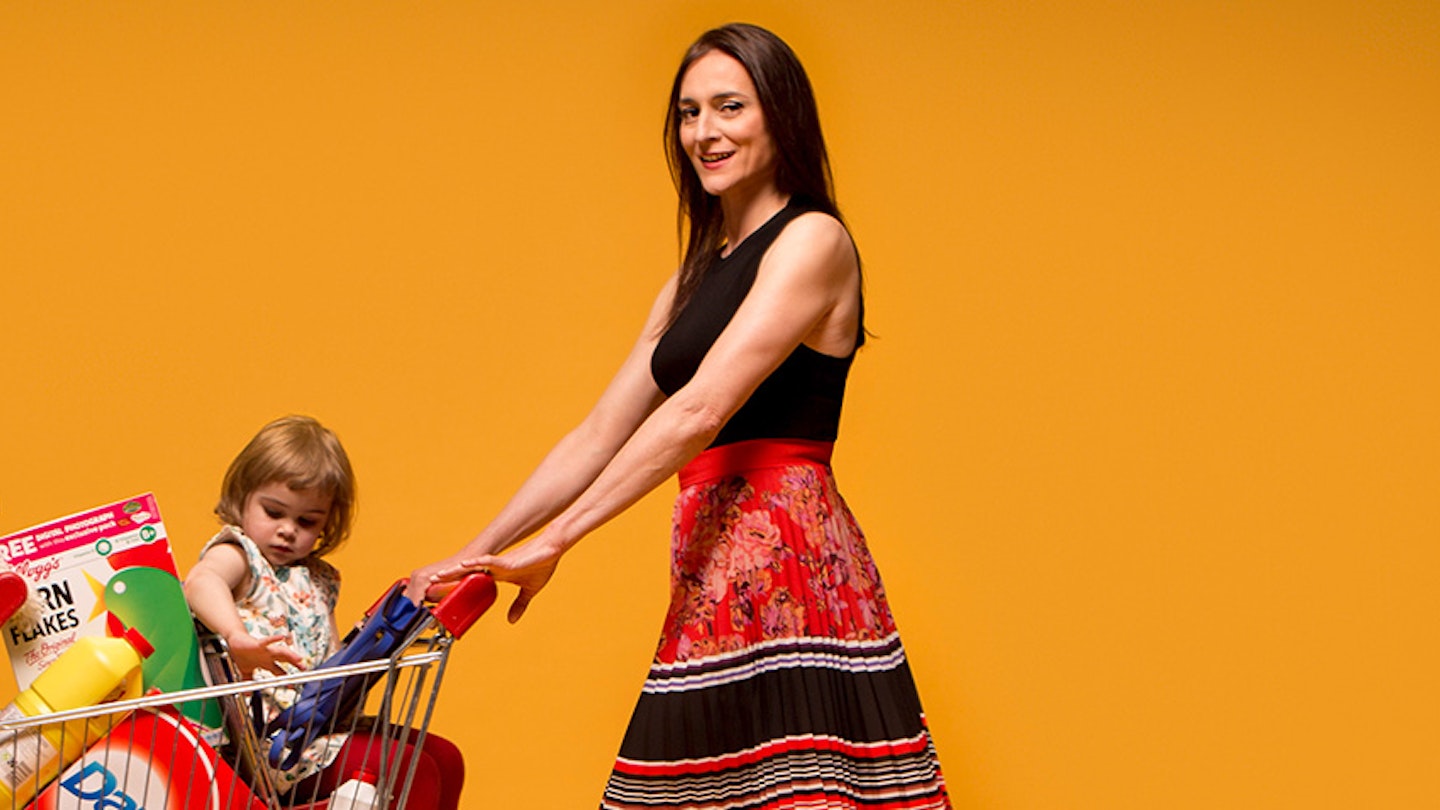It’s the gender debate that rarely gets spoken about in ‘serious’ academic terms, presumably written off as too trivial – too petty – to warrant serious scrutiny. But get a group of women together and I can guarantee that this topic will spark way more discussion than who should be the next Bond. I’m talking domestic equality – or, in other words, how can it be that in 2016, intelligent, successful women, who hold their own at work, still can’t achieve parity in their own homes?
‘It drives me nuts that, at work, I’ll negotiate a deal worth £1.25m,’ says a 35-year-old friend, who works in investment, ‘but at home, I can’t even get my husband to change the bedding. To get him to do his share involves rows or nagging, but the alternative often seems to be resigning myself to doing most or all of it to stop the atmosphere at home being so toxic.’ Sound familiar?
Melinda Gates knows what we’re talking about. In February, the business leader, philanthropist and mother-of-three made domestic equality the subject of her annual open letter for the Bill & Melinda Gates Foundation. In it, she observed that her teenage son and daughter expect that they will split the household chores evenly with their future spouses. ‘I’m sorry to say this, but [they’re] wrong,’ she wrote. ‘Unless things change, girls today will spend hundreds of thousands more hours than boys doing unpaid work simply because society assumes it’s their responsibility.’
Melinda went on to point out, ‘This isn’t a global plot by men to oppress women. It’s more subtle than that. The division of work depends on cultural norms, and we call them norms because they seem normal – so normal that many of us don’t notice the assumptions we’re making.’

But the foundations on which these norms lie have been through an earthquake. It used to be the man’s role to bring home the bacon. But between the ages of 22 and 29, women now out-earn men and millions are the main breadwinner (although, as women hit 30, the gender pay gap begins in earnest). Yet the average woman still spends 4.5 hours per day on the unpaid labour of chores, while men spend less than half that time. Sociologists call it the ‘stalled gender revolution’. My friends call it ‘the row we have every weekend’.
Take my friend Sally*, a biochemist. ‘What year is it again?’ she fumed over text recently. ‘We’re both working full-time and yet somehow my husband can’t clean the bathroom, remember to do any laundry, or see the pile of washing-up at the sink and just do it without being asked.’
The evidence is clear: making women do all the grunt work at home – whether it’s for your dad, brother, flatmate, boyfriend or husband – is a form of emotional, mental and financial oppression. Conversations about who does what in the home are often shut down: ‘I just want to relax when I’m not at work’; ‘You care about the house more than I do’; ‘You’re better at cleaning than I am’; ‘Stop nagging’. Yet establishing the responsibilities we each take at home really does matter.
‘It’s not just about fairness; assigning most unpaid work to women harms everyone: men, women, boys, and girls,’ says Melinda, referring to what economists call an ‘opportunity cost’, aka ‘the other things women could be doing if they didn’t spend so much time on mundane tasks’.
In other words, the toll of endless life admin – laundry, arranging childcare, keeping a full fridge, scheduling holidays, buying presents, changing beds, mopping the floor – could well be holding you back from being the next JK Rowling.
The Washington Post journalist Brigid Schulte wrote Overwhelmed: Work, Love And Play When No One Has The Time about trying to juggle work and family. She says that, ‘For women, the “mental labour” of keeping track of all that stuff to do, crashing around in a brain that can only hold seven pieces of information in its working memory, winds up making women’s time feel “contaminated”.’ This ‘mental contamination’ affects our ability to focus, she argues, and by extension, to be happy, creative and productive. Sobering studies that show women are 20% to 40% more likely than men to experience mental health problems ranging from depression to phobias ‘as a result of the stress of juggling many roles’.
Of course, there are households where men do as much, or more, of the dirty work than their female partners (and many single-parent households where one partner does the lot.) And this year, Lego introduced a stay-at-home ‘hipster dad’ figure to reflect updated attitudes towards who does what. Lego Hipster Dad has a huge beardy smile – and with reason: studies show couples are happier and marriages last longer when men pull their weight. Sheryl Sandberg’s recent ‘choreplay’ campaign even highlighted the fact that couples who share chores have sex more often.
And where women can’t get the equality they crave, they’re voting with their feet. According to one survey, 44% of couples stated that ‘a lack of equality’ was the primary reason for the breakdown of their marriages. The majority of divorces (69%) are now instigated by women, with a lack of domestic equality thought to be the cause. Michael Rosenfeld, an associate professor of sociology at Stanford University, who conducted the survey, says, ‘I think that marriage has been a little bit slow to catch up with expectations for gender equality. Husbands still expect their wives to do the bulk of the housework and the childcare. The results are consistent with a feminist critique of heterosexual marriage as a gendered institution in which wives find less satisfaction.’
‘Couples get stuck in patterns of behaviour and the patterns – and the anger – get stronger over time,’ says Jessica DeGroot of ThirdPath Institute. According to Jessica, the real issue for these couples is not who puts the recycling out. ‘They’re letting their jobs take up enormous amounts of their energy, and they come home and argue. The real question is: is that really what you want to do with your life and, if not, are you blaming each other for that?’
In other words, achieving domestic equality requires a major life re-think. Something to ponder the next time you’re washing up…
DOMESTIC EQUALITY – WHERE TO START
1. BE INTENTIONAL
The path of least resistance is simply to let work and traditional gender roles take over, so whoever has the higher-paying job has first dibs on a career. Instead, be intentional about what you want, even if you may feel you’re swimming
against a strong tide of what’s ‘normal’.
2. DEVELOP A COMMON VISION
You and your partner need to see eye-to-eye on the kind of life you want to lead and stick to it when circumstances change. When couples have children, mothers commonly resist relinquishing control and fathers feel inadequate. Remind each other that you want to share family responsibilities.
3. EXPERIMENT
Think differently about your job. Can you spread your workload out throughout the year? Can you each choose two nights a week to work late so that you can share other responsibilities fairly?
Legally, in the UK companies now have to consider any requests for flexible working.
Photographs David Yeo
READ MORE: YOU TELL US: Does Gender Discrimination Still Exist In The Work Place?
